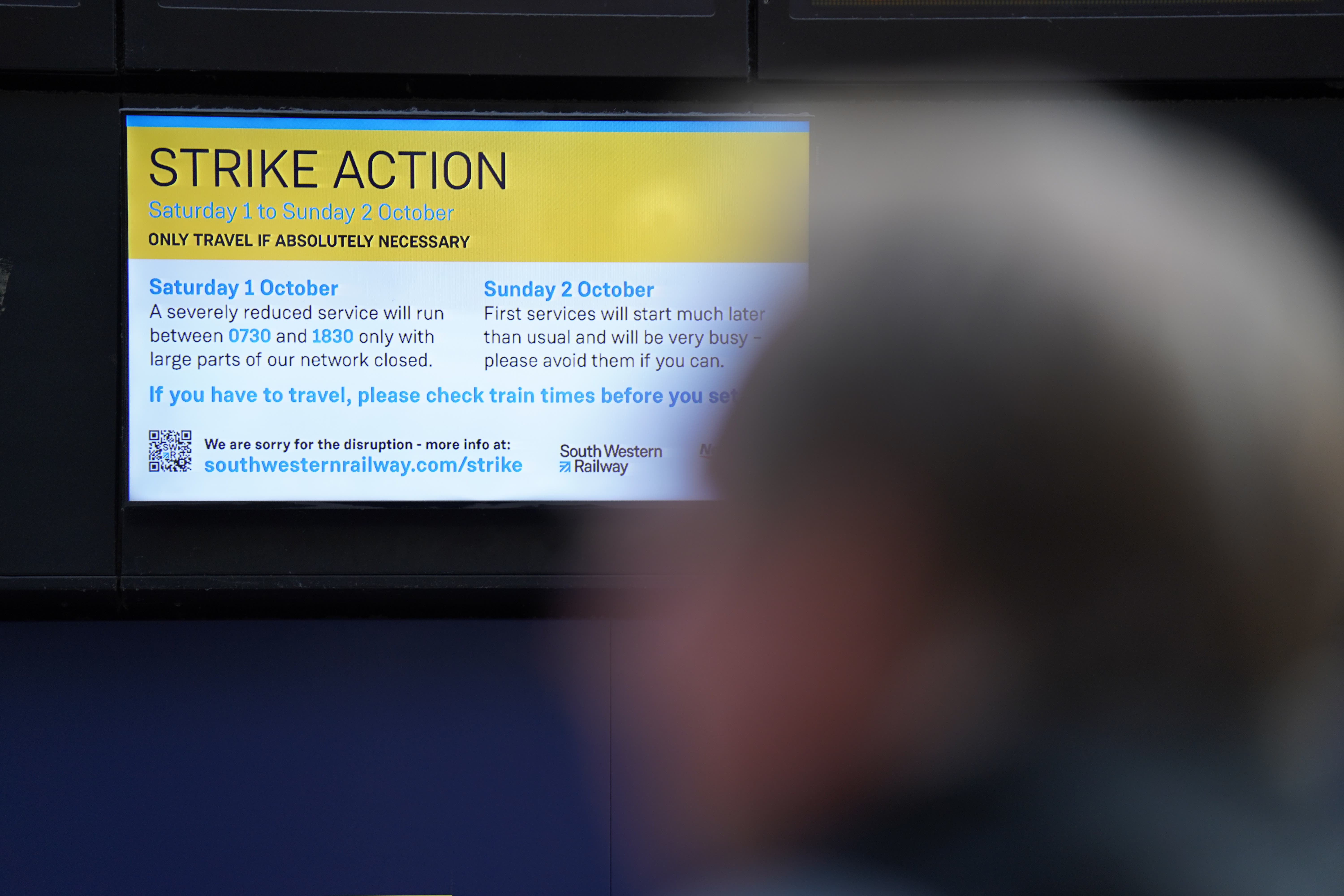Nearly four million working days lost to strikes in past year, says think tank
A real-terms fall in pay has fuelled many of the strikes, the Resolution Foundation said.

Your support helps us to tell the story
From reproductive rights to climate change to Big Tech, The Independent is on the ground when the story is developing. Whether it's investigating the financials of Elon Musk's pro-Trump PAC or producing our latest documentary, 'The A Word', which shines a light on the American women fighting for reproductive rights, we know how important it is to parse out the facts from the messaging.
At such a critical moment in US history, we need reporters on the ground. Your donation allows us to keep sending journalists to speak to both sides of the story.
The Independent is trusted by Americans across the entire political spectrum. And unlike many other quality news outlets, we choose not to lock Americans out of our reporting and analysis with paywalls. We believe quality journalism should be available to everyone, paid for by those who can afford it.
Your support makes all the difference.Around 3.9 million working days have been lost to industrial action in the past year, more than at any point since the 1980s, according to new research.
Many of the strikes have been fuelled by real-terms falls in pay of more than 9% in the highly-unionised public sector, said the Resolution Foundation.
Sectors including health, education, the postal services and railways have been responsible for 96% of all days lost to strike action since 2021, said the think tank.
Its report, released as junior doctors continue a four-day walkout, said high inflation meant average weekly pay for all workers was 4.1% lower in real terms in the three months to May than it was in the same quarter in 2021.
But real-terms pay for public sector workers fell by 9.2% over the same period and for those in health and social care it fell by 9.8%, the study indicated.
The inflation-driven pay squeeze should also be understood as part of a broader pattern of poor pay growth across both the public and private sectors
The Foundation said the strikes were not just about pay, warning that working conditions, exhaustion and stress also played an important part.
The public sector pay squeeze also appears to have contributed to an increase in vacancies, with those in health, education and public administration 33% higher in March than in December 2019, compared with 23% higher across the rest of the economy, said the report.
Nye Cominetti, senior economist at the Resolution Foundation, said: “The recent strikes from teachers and junior doctors reflect the fact that real-terms public sector pay has fallen severely in the past few years, as well as the stress and difficult workplace conditions frequently reported by workers in these sectors.
“However, the inflation-driven pay squeeze should also be understood as part of a broader pattern of poor pay growth across both the public and private sectors, and falling pay satisfaction among public sector workers.
“Going forwards, the Government will need to balance fiscal caution with the need to provide a level of pay for public sector workers that reflects the very real difficulties faced by workers in these sectors, and ensures that vacancies in these sectors continue to be filled.
“In addition, there should also be a renewed focus on improving pay and working conditions for workers in essential sectors like social care, that are largely not unionised, but which are still experiencing the effects of job stresses and pay squeezes.”